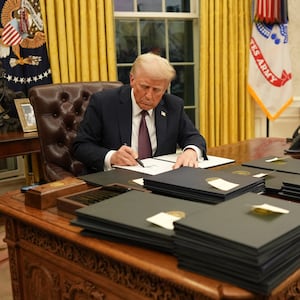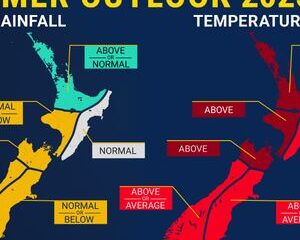Business
Trump Tariffs Challenge NZ Exporters Amid Shifting Trade Policies

New Zealand exporters are facing significant challenges as a result of new tariffs imposed by the United States under the leadership of President Donald Trump. Since resuming office in January 2023, Trump has implemented a series of changes to U.S. trade policies, including the unexpected introduction of a 15% tariff on New Zealand goods. This move has sparked concern among business leaders in New Zealand, particularly as they navigate an increasingly complex trade environment.
CEOs Express Concerns Over U.S. Trade Climate
The mood among New Zealand CEOs and directors appears to be largely negative regarding Trump’s recent actions. According to the 2025 CEOs Survey conducted by the Herald, only two out of 150 respondents rated Trump’s performance as “very impressive.” Most respondents expressed apprehension about the implications of the new tariffs on their businesses and the broader economic landscape.
Neil Paviour-Smith, the managing director of Forsyth Barr, commented on the situation, highlighting that while Trump has assumed significant control over U.S. trade policy, the U.S. economy continues to grow. Paviour-Smith noted, “Looking past the noise on the obvious factors that get attention, the US economy is growing and markets are at record levels, suggesting optimism in the outlook. This doesn’t mean his policies are necessarily agreeable.”
The call for New Zealand to increase its defense budget in response to U.S. expectations adds another layer of complexity to the relationship between the two countries. As trade tensions escalate, New Zealand businesses are left to grapple with the potential ramifications of these evolving policies.
Impact on Exporters and Future Outlook
The 15% tariff on New Zealand exports threatens to disrupt established trade relationships and could lead to increased costs for consumers in both countries. New Zealand’s economy, which relies heavily on exports, particularly in sectors like agriculture and dairy, may feel the effects of these tariffs more acutely than others.
As business leaders assess the situation, some are calling for a proactive approach to adapt to the changing trade environment. Strategies may include diversifying markets and seeking new trade partnerships to mitigate reliance on the United States.
In summary, the evolving trade policies under President Trump are reshaping the landscape for New Zealand exporters, prompting a cautious outlook among CEOs. As the situation develops, the focus will be on how New Zealand businesses can navigate these challenges while maintaining growth and competitiveness in the global market.
-

 World1 week ago
World1 week agoPrivate Funeral Held for Dean Field and His Three Children
-

 Top Stories2 weeks ago
Top Stories2 weeks agoFuneral Planned for Field Siblings After Tragic House Fire
-

 Sports3 months ago
Sports3 months agoNetball New Zealand Stands Down Dame Noeline Taurua for Series
-

 Entertainment3 months ago
Entertainment3 months agoTributes Pour In for Lachlan Rofe, Reality Star, Dead at 47
-

 Entertainment2 months ago
Entertainment2 months agoNew ‘Maverick’ Chaser Joins Beat the Chasers Season Finale
-

 Sports3 months ago
Sports3 months agoSilver Ferns Legend Laura Langman Criticizes Team’s Attitude
-

 Sports4 weeks ago
Sports4 weeks agoEli Katoa Rushed to Hospital After Sideline Incident During Match
-

 World2 weeks ago
World2 weeks agoInvestigation Underway in Tragic Sanson House Fire Involving Family
-

 Politics2 months ago
Politics2 months agoNetball NZ Calls for Respect Amid Dame Taurua’s Standoff
-

 Top Stories2 weeks ago
Top Stories2 weeks agoShock and Grief Follow Tragic Family Deaths in New Zealand
-

 Entertainment3 months ago
Entertainment3 months agoKhloe Kardashian Embraces Innovative Stem Cell Therapy in Mexico
-

 World4 months ago
World4 months agoPolice Arrest Multiple Individuals During Funeral for Zain Taikato-Fox


















